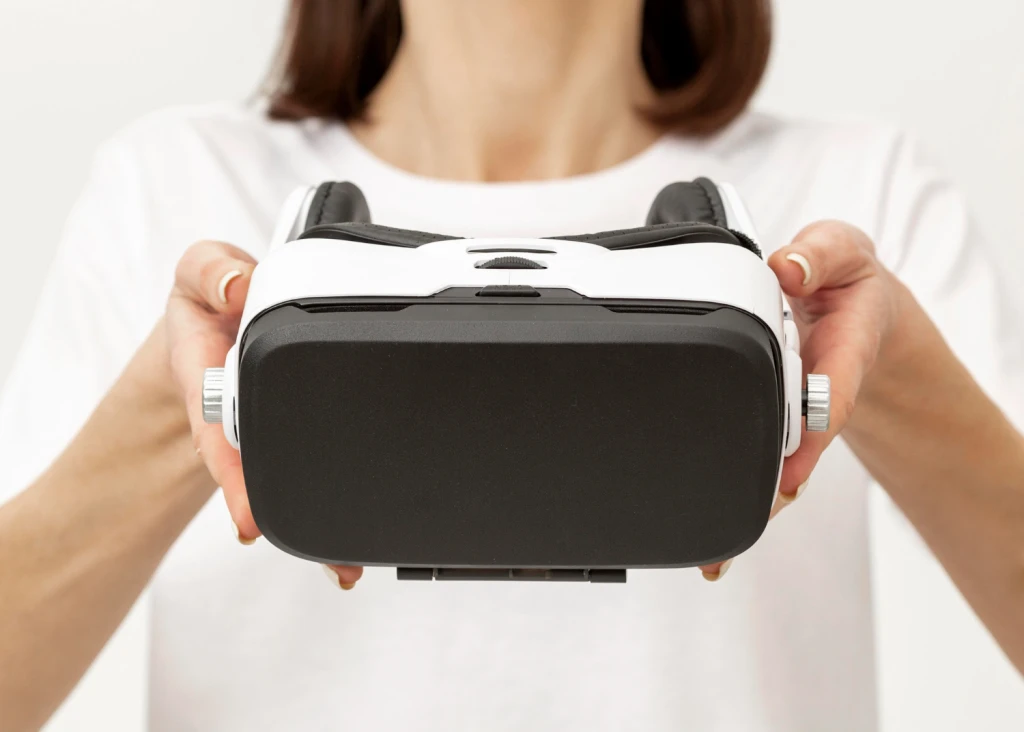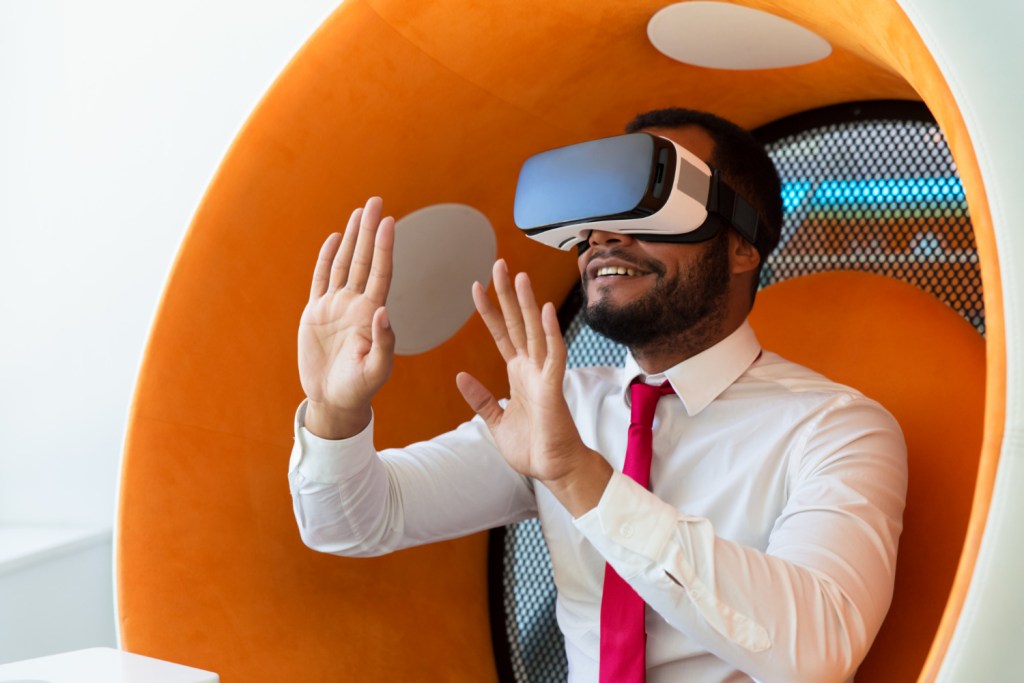The Unique Use of Virtual Reality in Speech Therapy
Products & Tools
Feb 6, 2023



Virtual reality (VR) technology is becoming increasingly popular in a variety of industries, including healthcare. Virtual reality in speech therapy has shown potential in the field of speech and language therapy as a technique for improving client outcomes and the therapeutic experience. VR enables therapists to construct immersive settings that engage clients in a realistic and interactive manner. This article will look into the usage of vr speech therapy and its benefits.
Benefits of VR in Speech and Language Therapy
Increased Engagement
Increased participation is one of the primary benefits of virtual reality in speech therapy. The immersive and engaging characteristics of vr speech therapy can aid in catching a client's attention and keeping them engaged in therapeutic sessions. Clients who are more engaged in their treatment sessions are more likely to make progress quickly. Furthermore, virtual reality can contribute to a more engaging and interesting therapeutic session, motivating clients to engage.
Improved Outcomes
VR speech therapy also improves outcomes in speech and language treatment. VR offers a distinct platform for treatment activities, allowing therapists to construct tasks that are both enjoyable and demanding. This combination of delight and hardship can serve to enhance motivation and foster more meaningful growth. Furthermore, virtual reality in speech therapy can assist in creating a more immersive environment. This makes it simpler for clients to practice skills in real-world situations, boosting their chances of success. VR also offers clients the opportunity to get rapid feedback, which may assist in reinforcing learning and enhancing outcomes.
Reduced Costs
Finally, VR in speech and language therapy can help to reduce costs. By eliminating the need for physical therapy spaces and materials, VR can make speech and language therapy more accessible. It is also cost-effective for clients and therapists alike. Additionally, VR can help to reduce the time required for therapy. VR makes it more efficient and allowing therapists to see more clients in a shorter amount of time.

Image by pch.vector on Freepik
Applications of VR in Speech and Language Therapy
Speech Therapy
VR can be used in speech therapy to help clients improve their speech skills. For example, VR can be used to create interactive environments that allow clients to practice speaking in real-life situations, such as ordering food in a restaurant or giving a presentation. Additionally, VR can be used to help clients overcome specific speech challenges, such as stuttering or pronunciation difficulties. The interactive nature of VR can provide clients with immediate feedback, allowing them to make adjustments in real-time and improving their speech skills more quickly.
Language Therapy
VR can also be used in language therapy to help clients improve their language skills. For example, VR can be used to create interactive environments that allow clients to practice using new vocabulary or grammar structures in real-life situations. Additionally, VR can be used to help clients overcome specific language challenges, such as aphasia or difficulties with comprehension. By providing clients with an immersive and interactive experience, VR can help them to practice their language skills in a way that feels more real, increasing the likelihood of success.
Conclusion
In conclusion, the use of vr in speech therapy has the potential to revolutionize the field, offering benefits such as increased engagement, improved outcomes, and reduced costs. While virtual reality speech therapy technology is still in its early stages, its potential for use in speech and language therapy is enormous. As VR continues to evolve, it is likely that it will play an increasingly important role in helping clients achieve their therapy goals. As such, it is important for speech and language therapists to be knowledgeable about VR and its applications in therapy to provide the best possible care for their clients.
To take your practice to the next level, consider Liri AI, a game-changing tool for speech-language pathologists. It helps SLPs save up to 70% of their time.
Related Articles
Virtual reality (VR) technology is becoming increasingly popular in a variety of industries, including healthcare. Virtual reality in speech therapy has shown potential in the field of speech and language therapy as a technique for improving client outcomes and the therapeutic experience. VR enables therapists to construct immersive settings that engage clients in a realistic and interactive manner. This article will look into the usage of vr speech therapy and its benefits.
Benefits of VR in Speech and Language Therapy
Increased Engagement
Increased participation is one of the primary benefits of virtual reality in speech therapy. The immersive and engaging characteristics of vr speech therapy can aid in catching a client's attention and keeping them engaged in therapeutic sessions. Clients who are more engaged in their treatment sessions are more likely to make progress quickly. Furthermore, virtual reality can contribute to a more engaging and interesting therapeutic session, motivating clients to engage.
Improved Outcomes
VR speech therapy also improves outcomes in speech and language treatment. VR offers a distinct platform for treatment activities, allowing therapists to construct tasks that are both enjoyable and demanding. This combination of delight and hardship can serve to enhance motivation and foster more meaningful growth. Furthermore, virtual reality in speech therapy can assist in creating a more immersive environment. This makes it simpler for clients to practice skills in real-world situations, boosting their chances of success. VR also offers clients the opportunity to get rapid feedback, which may assist in reinforcing learning and enhancing outcomes.
Reduced Costs
Finally, VR in speech and language therapy can help to reduce costs. By eliminating the need for physical therapy spaces and materials, VR can make speech and language therapy more accessible. It is also cost-effective for clients and therapists alike. Additionally, VR can help to reduce the time required for therapy. VR makes it more efficient and allowing therapists to see more clients in a shorter amount of time.

Image by pch.vector on Freepik
Applications of VR in Speech and Language Therapy
Speech Therapy
VR can be used in speech therapy to help clients improve their speech skills. For example, VR can be used to create interactive environments that allow clients to practice speaking in real-life situations, such as ordering food in a restaurant or giving a presentation. Additionally, VR can be used to help clients overcome specific speech challenges, such as stuttering or pronunciation difficulties. The interactive nature of VR can provide clients with immediate feedback, allowing them to make adjustments in real-time and improving their speech skills more quickly.
Language Therapy
VR can also be used in language therapy to help clients improve their language skills. For example, VR can be used to create interactive environments that allow clients to practice using new vocabulary or grammar structures in real-life situations. Additionally, VR can be used to help clients overcome specific language challenges, such as aphasia or difficulties with comprehension. By providing clients with an immersive and interactive experience, VR can help them to practice their language skills in a way that feels more real, increasing the likelihood of success.
Conclusion
In conclusion, the use of vr in speech therapy has the potential to revolutionize the field, offering benefits such as increased engagement, improved outcomes, and reduced costs. While virtual reality speech therapy technology is still in its early stages, its potential for use in speech and language therapy is enormous. As VR continues to evolve, it is likely that it will play an increasingly important role in helping clients achieve their therapy goals. As such, it is important for speech and language therapists to be knowledgeable about VR and its applications in therapy to provide the best possible care for their clients.
To take your practice to the next level, consider Liri AI, a game-changing tool for speech-language pathologists. It helps SLPs save up to 70% of their time.